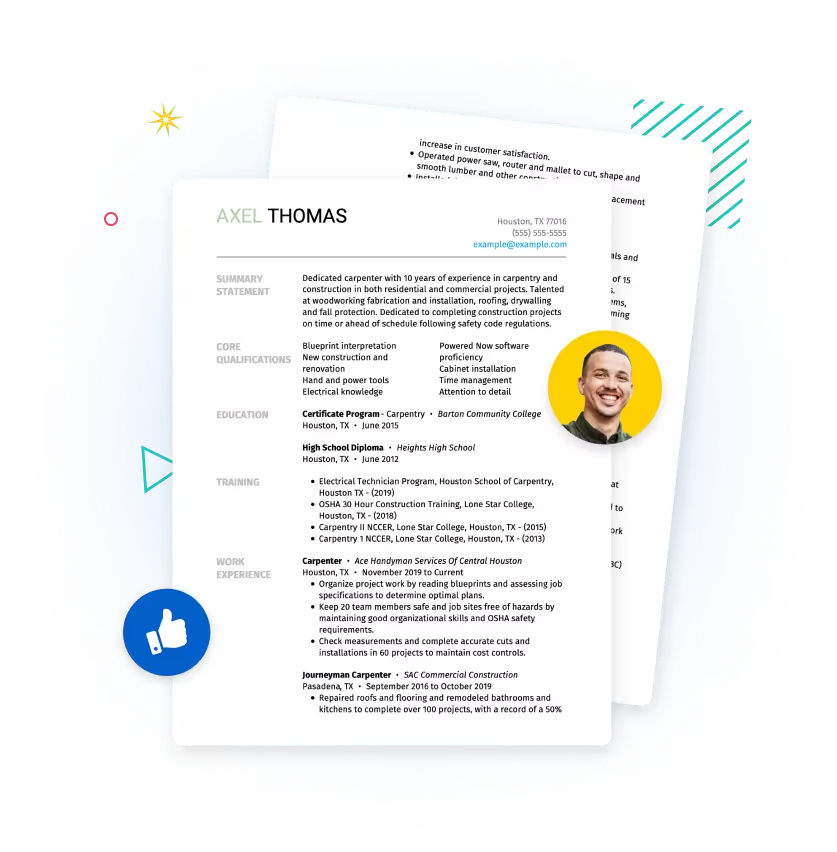Beyond just Brit lingo for the term ‘resume’, a CV or curriculum vitae is a must if you’re entering the world of academia as a lecturer or tenure-track professor, applying for a research-centric role in the workplace, or gearing up to land a job overseas in Europe and beyond.
Unlike the shorter more concise resume, a CV goes above and beyond merely summarizing your work experience and skills and rather provides a more detailed guide to your work story. This means that it includes everything from scholarships and publication to hobbies and references.
Even if you aren’t looking for a new job right now, and even if your target employers haven’t specifically asked for a CV, it’s a good idea to have one on hand. Completed CVs can take a long time to generate, and when you have a finished document on file, you can retain it and refer to it whenever you need to remember the details of your long and winding career.
When you’re ready to take on this project, our CV templates can help you get started.
Academic CV Template
Here’s one of our example CV templates that can help you as you begin to formulate your own document. Keep in mind that there’s no one single format for a formal CV, and your individual formatting decisions may vary based on the request of your employer and the shape and nature of your academic career.
In this example, as in several of our CV templates, the applicant is a seasoned professional with an average track record and at least five to 10 years of experience in the classroom. If you’re a mid-career professional, your CV will likely look something like this one, though yours may be significantly longer. Our example CV templates are confined by the available space, but an average mid-career CV may fill over three pages.
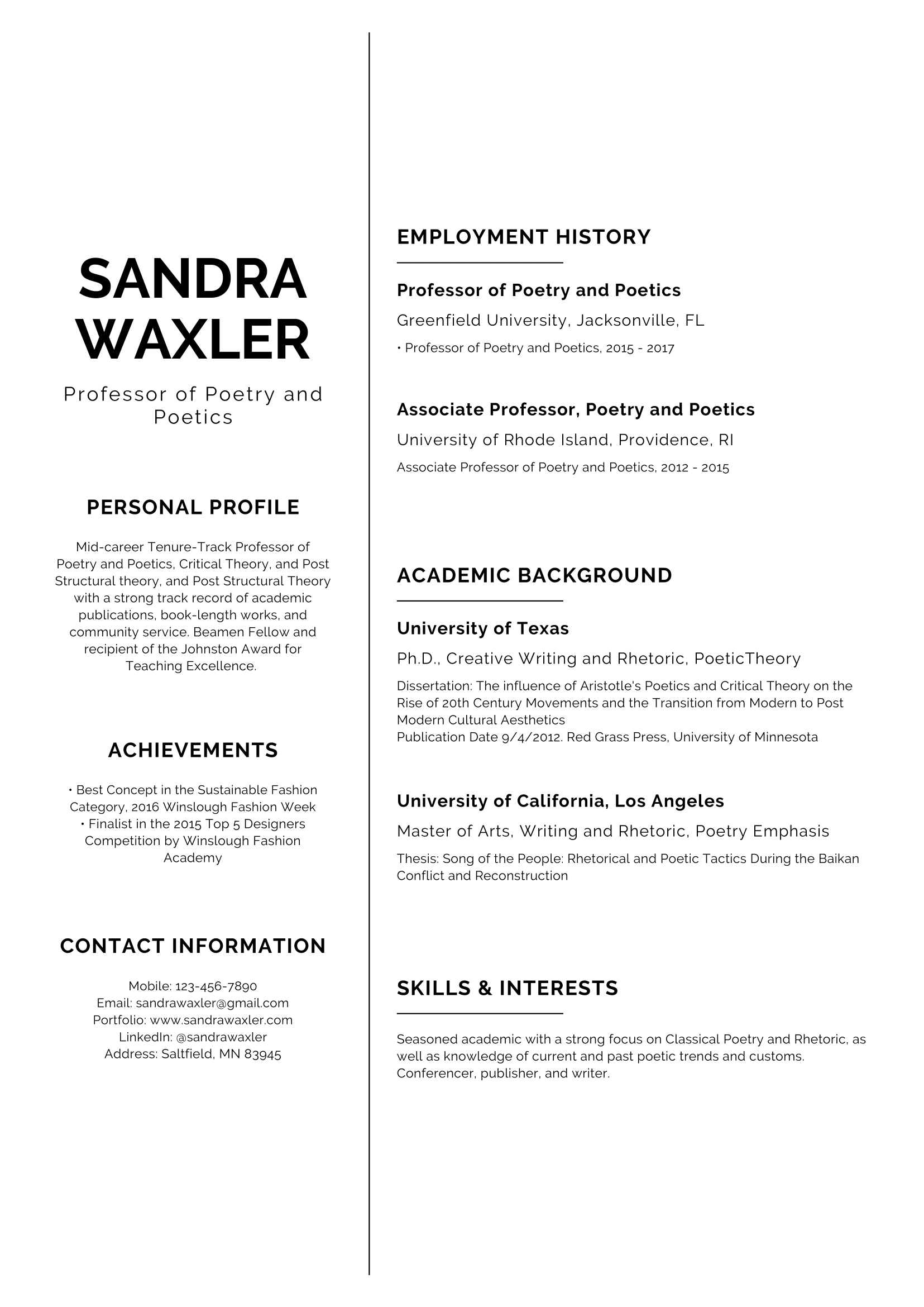
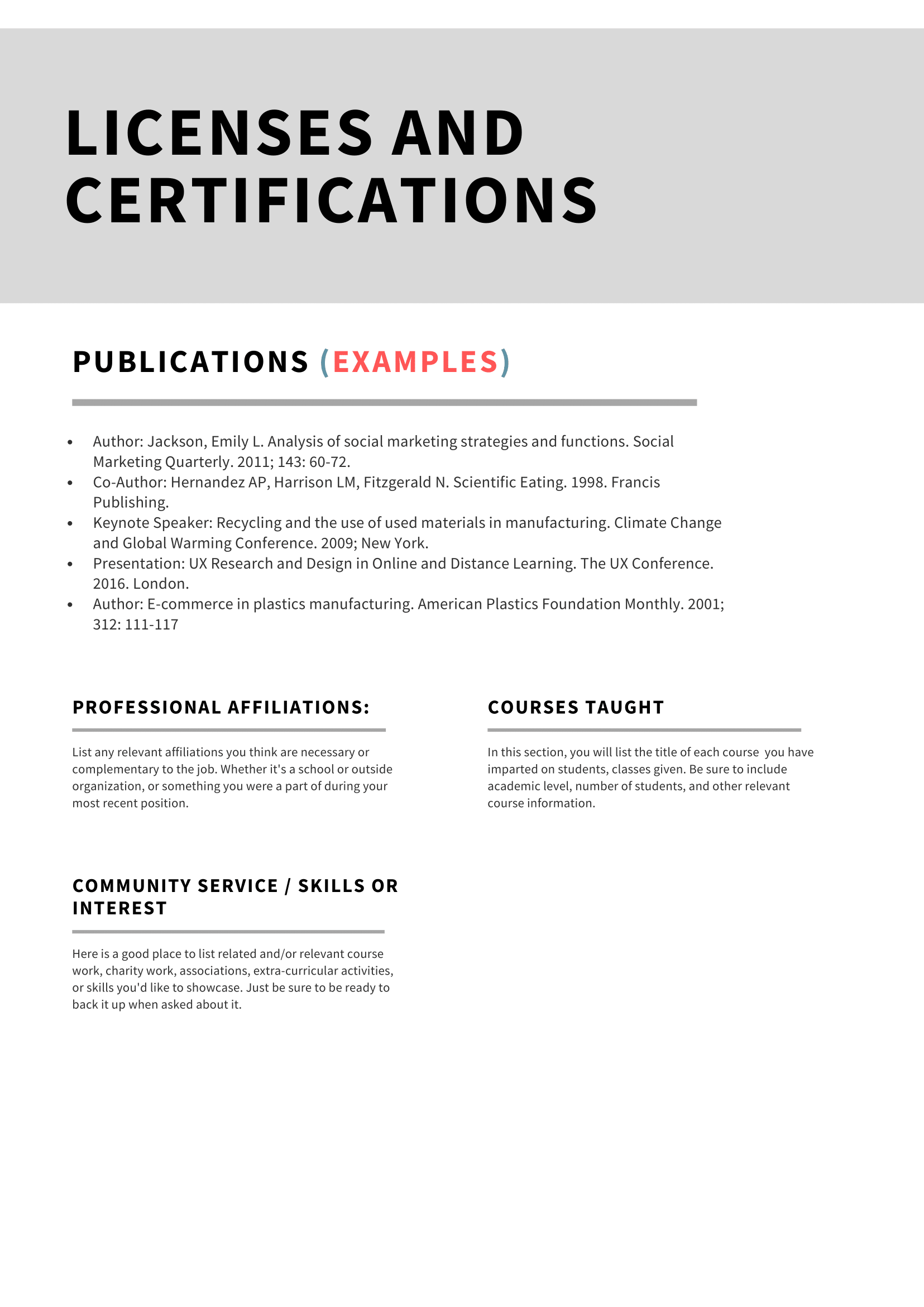


Page 2
Click to enlage
Student CV Template
Here’s another example in our collection of CV templates, and in this case, the CV example applies to a student who may have completed a Ph.D., but has minimal professional teaching experience. As a student or recent graduate, you’ll be applying for the same academic positions and employers will hold you to the same application requirements as your more seasoned peers, but since you’ll have limited course descriptions to share, you’ll offer more detail regarding the courses you’ve taken.
You’ll also include detailed descriptions of the courses you’ve taught as a graduate student assistant, a lecturer, or a fellow. Our CV templates can guide you through each step of this process.
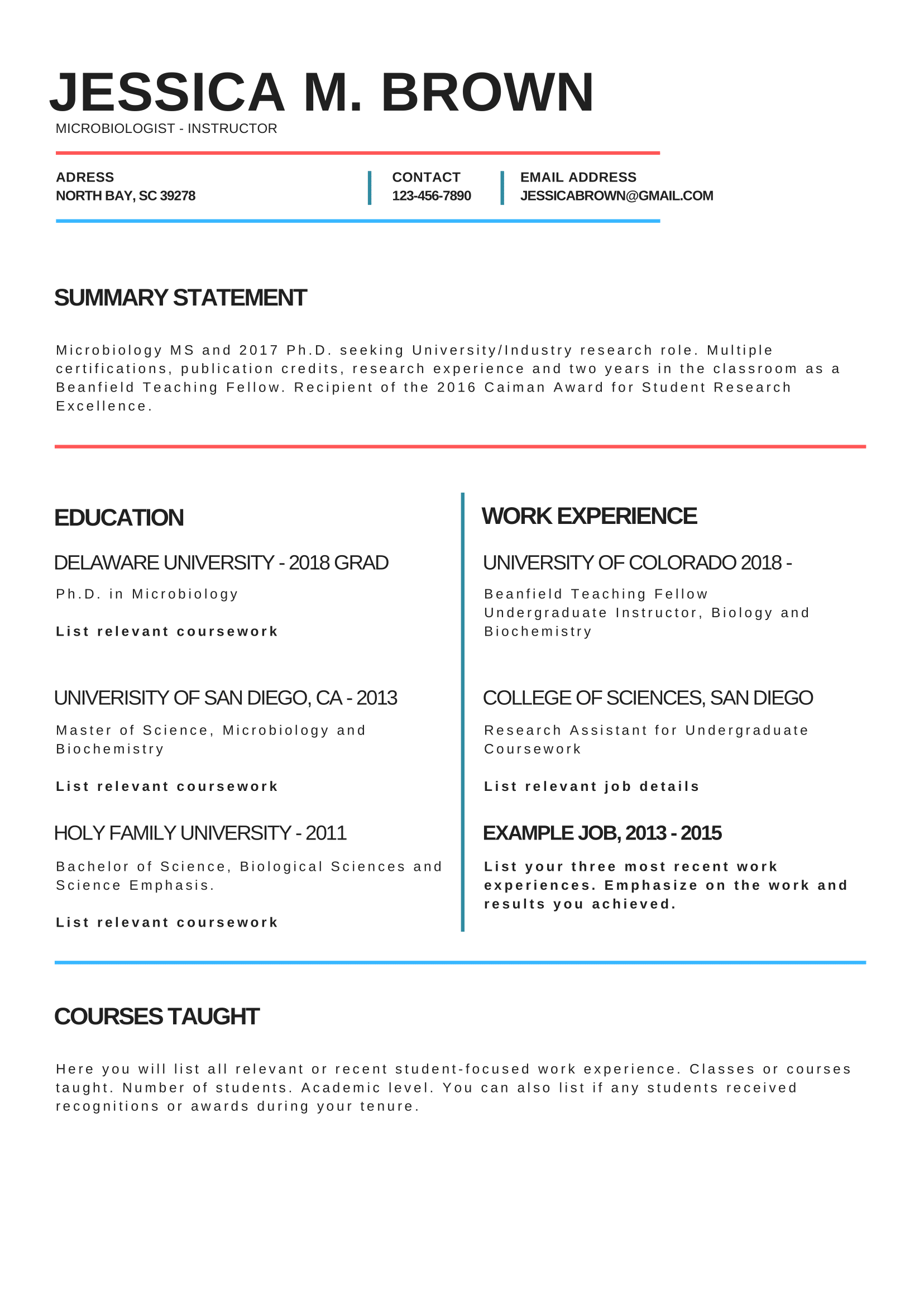


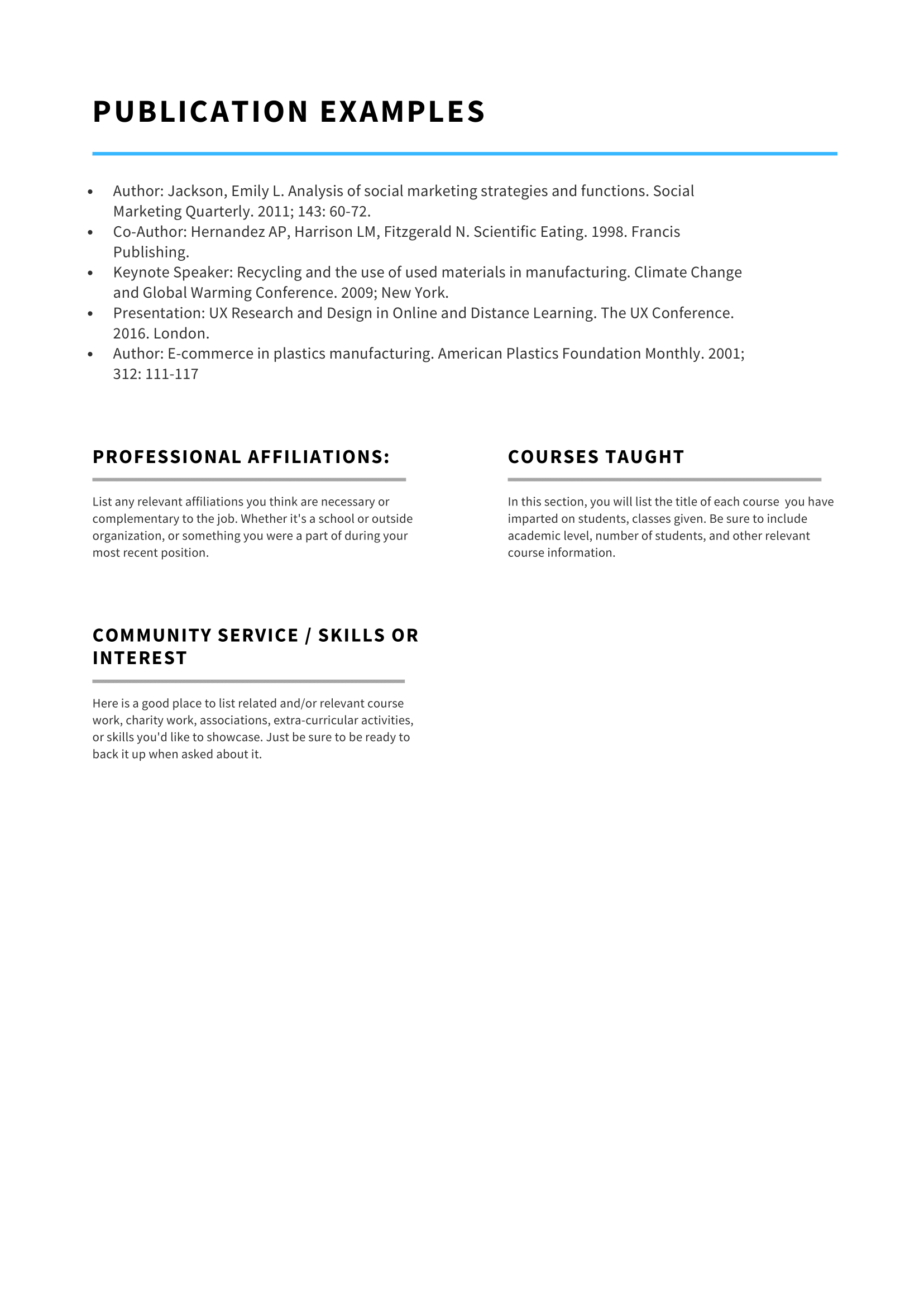


Page 2
Click to enlage
Europass CV Template
A Europass CV is one of five documents that make up the Europass. Not to be confused with the rail pass by the same name, the Europass describes an employment portfolio structure designed to make your skills and qualifications understood across Europe, no matter the specific country in which you’re seeking work.
The complete Europass includes five items total: The CV, the Language Passport, the Europass Mobility, the Certificate Supplement, and the Diploma Supplement. Our collection of CV templates specifically focuses on the CV (Curriculum Vitae) aspect of the five.
Since employers in different countries—especially academic employers—may not share the same definition or understanding of various degrees and credentials, the Europass helps to streamline and standardize the application process so an employer in one country can fully appreciate the significance, hard work, training, and knowledge inherent in a credential earned in another.
In many ways, the Europass CV format (and our CV templates) resemble that of a standard resume in the United States. The overlap between the two concepts can be confusing, but hopefully our CV templates can help. Here’s an example of a typical Europass CV structure.
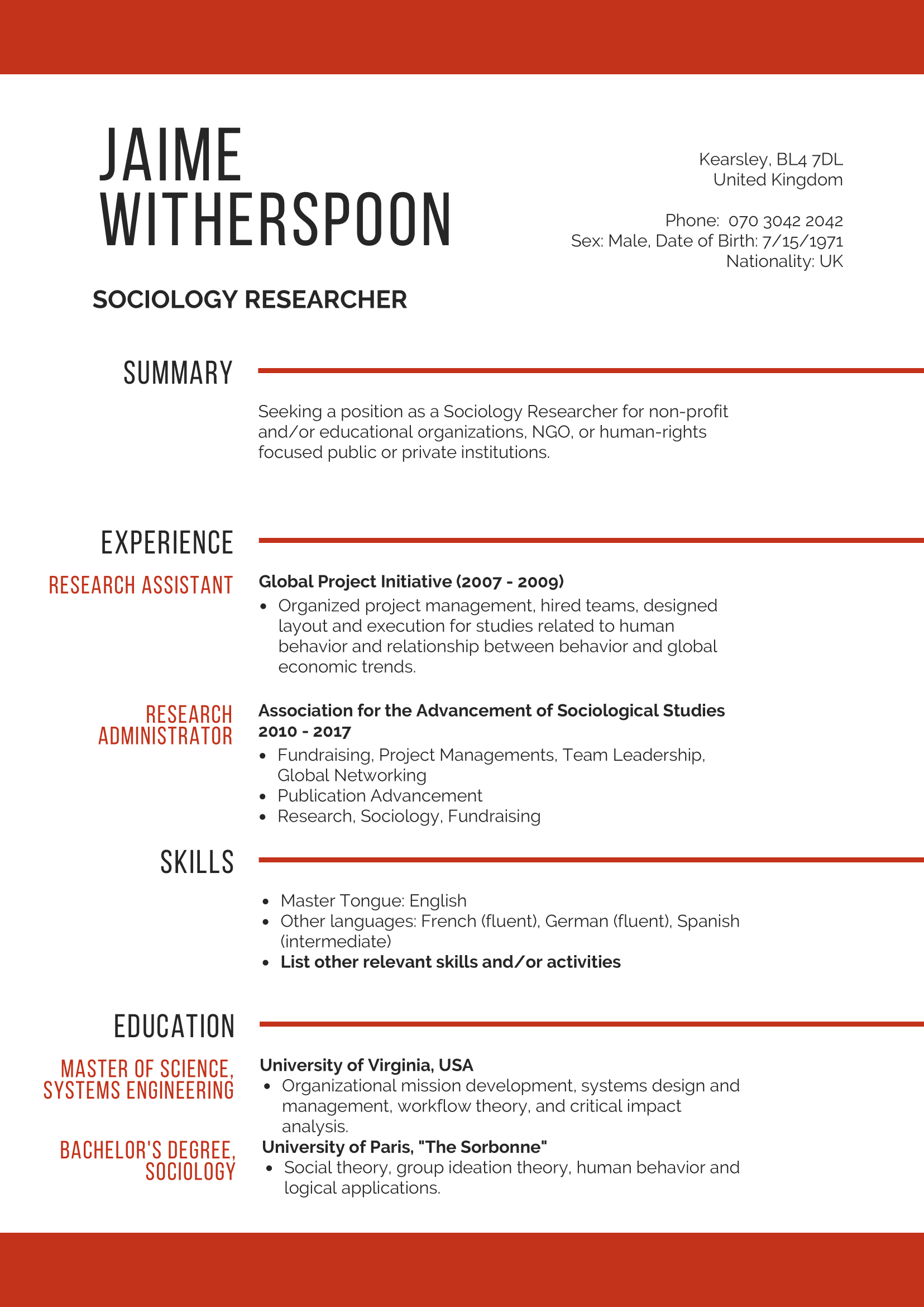


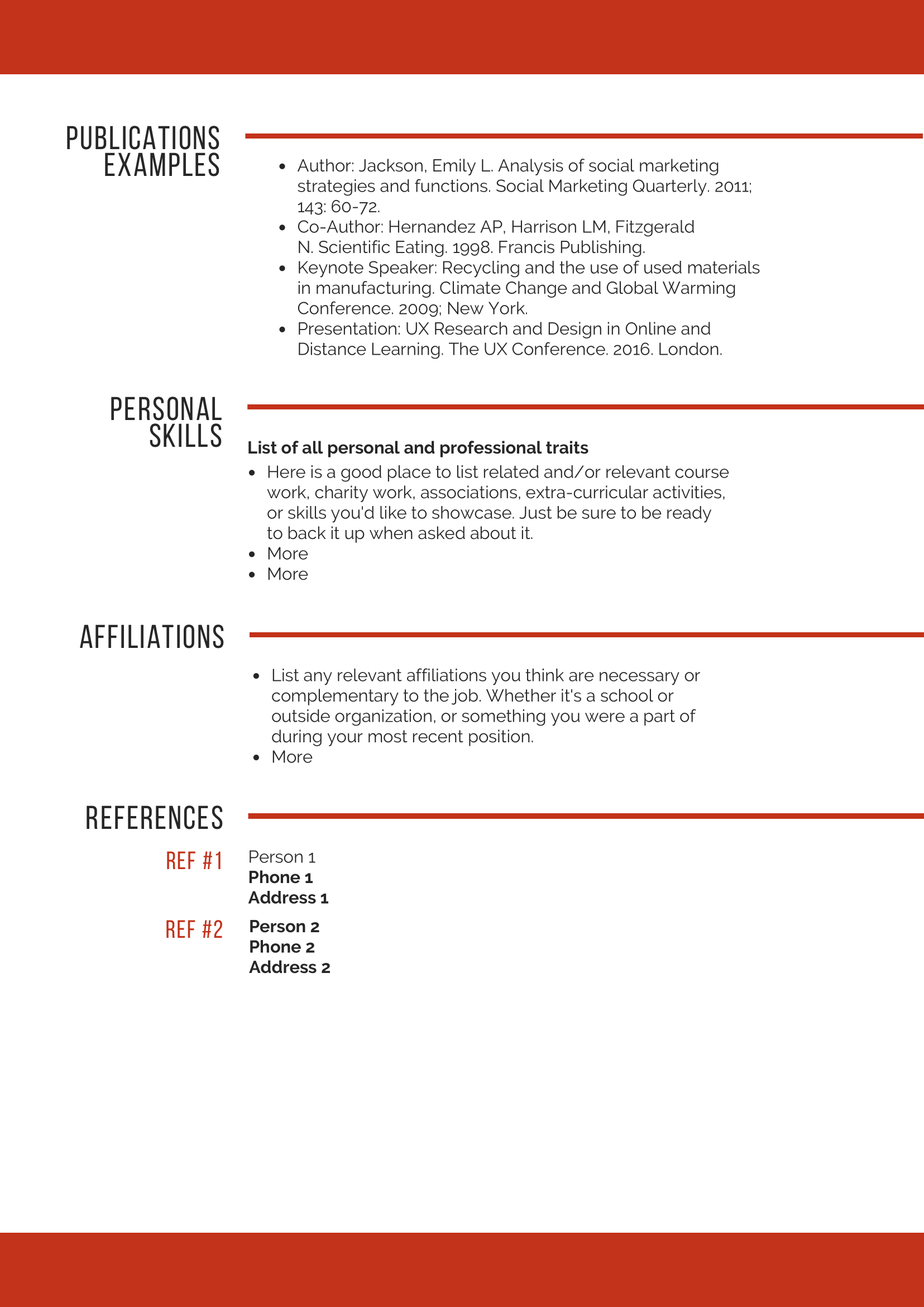


Page 2
Click to enlage
CV Writing Do’s and Don’ts
DO
have a sense of where you’re going before you begin. Mentally map out your entire document and consider lengths for each section. Expect to keep the bare bones sections tight (for example, your education history) and expand generously on the sections that can use more detail (like your coursework, publications, and special projects).
DON’T
expect to get every word and detail perfect on the first try. A CV is a living document, and just reaching the point of an acceptable first draft can take weeks or even months. With that in mind, if you expect to graduate and launch your job search next spring, start putting your CV together now. Expect lots of stops and starts.
DO
be sure to keep records, ideally starting the first day of your graduate coursework. This will help you immensely when it’s time to create your CV in the future.
If you can cut and paste text from each of your previous publication summaries and the syllabi you worked so hard to generate before the first day of each class, you’ll save yourself from a mountain of work as you try to recreate the mission, goals, and substance of each course and each past publication and presentation.
And of course, if you keep complete records, you’ll be less likely to forget a key accomplishment that might have tipped employer interest in your favor.
DON’T
expect to get every word and detail perfect on the first try. A CV is a living document, and just reaching the point of an acceptable first draft can take weeks or even months. With that in mind, if you expect to graduate and launch your job search next spring, start putting your CV together now. Expect lots of stops and starts.
DO
feel free to leave out certain details if you don’t believe they can help you achieve your goals. For example, if you taught several freshman introductory courses and each of them were more or less the same and involved the same text material and the same course structure, you don’t have to include them all, especially if they don’t accurately reflect your current field of study and area of expertise.
The same applies to a project that isn’t completely relevant to your future plans, or a not-perfectly relevant paper for which you received shared credit. Every detail counts, but only if that detail helps to steer your career in the right direction.
DON’T
be afraid to get help. A CV can be a long, intense, and sometimes bewildering document if you’ve never created one before. It’s a good idea to turn to your academic advisor, the members of your thesis committee, and anyone else you consider a mentor and show them your draft (or drafts) before you submit to potential employers.
You may even want to get help and feedback long before you begin your job search. If all goes well, you’ll step out of your cap and gown and into the marketplace with your entire polished CV in hand. You’ll be ready to share your documents with academic employers as soon as appealing positions become available for the entire duration of your career.
DO
expect to keep adding to your current text. Unlike a resume, a CV doesn’t have to be pruned and trimmed with each new chapter of your working life. You don’t need to keep your professional story limited in scope and length, so each time you teach a new course, publish a new paper, present at a new conference, lead a new team, or spearhead a new project, you’ll simply add that credential to what you already have.
As your accomplishments accumulate over time, your CV can just keep growing.
DON’T
stop with the information you already have. If you don’t yet have any testimonials in hand from your students and administrators, or a website of your own, or a list of glowing recommendations, go out and get them.
Let your past mentors and advisors know that you’re seeking work in academia, and be bold when it comes to reaching out and getting the support your need from those who have worked with you in the past.
DO
remember a simple rule: If in doubt, add. If you participated in a volunteer activity, mentored a student, gave an interview, were mentioned in an article or review, or helped another academic professional accomplish something impressive, it’s reasonable to include this detail in your CV.
If you find it difficult to explain exactly what the project entailed or how you contributed to its success, get help; don’t just decide to leave it out of your professional story.
DON’T
be caught off guard if you’re asked about any detail of any accomplishment that you’ve mentioned in your CV.
Your prospective employers may surprise you by asking about a minor reference text you used in a course you taught ten years ago, or the methodology you used to conduct a study you haven’t thought about in a long time. Be ready for this, and as part of your interview preparation, read back over your CV, even the details you wrote and edited years earlier in your career.












